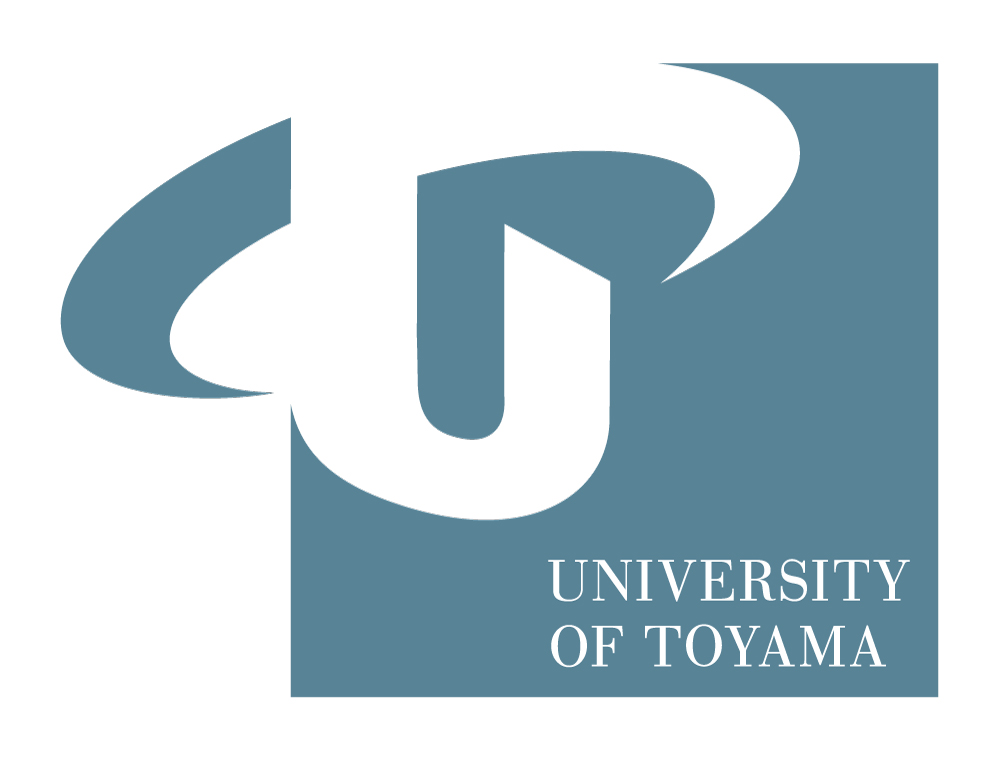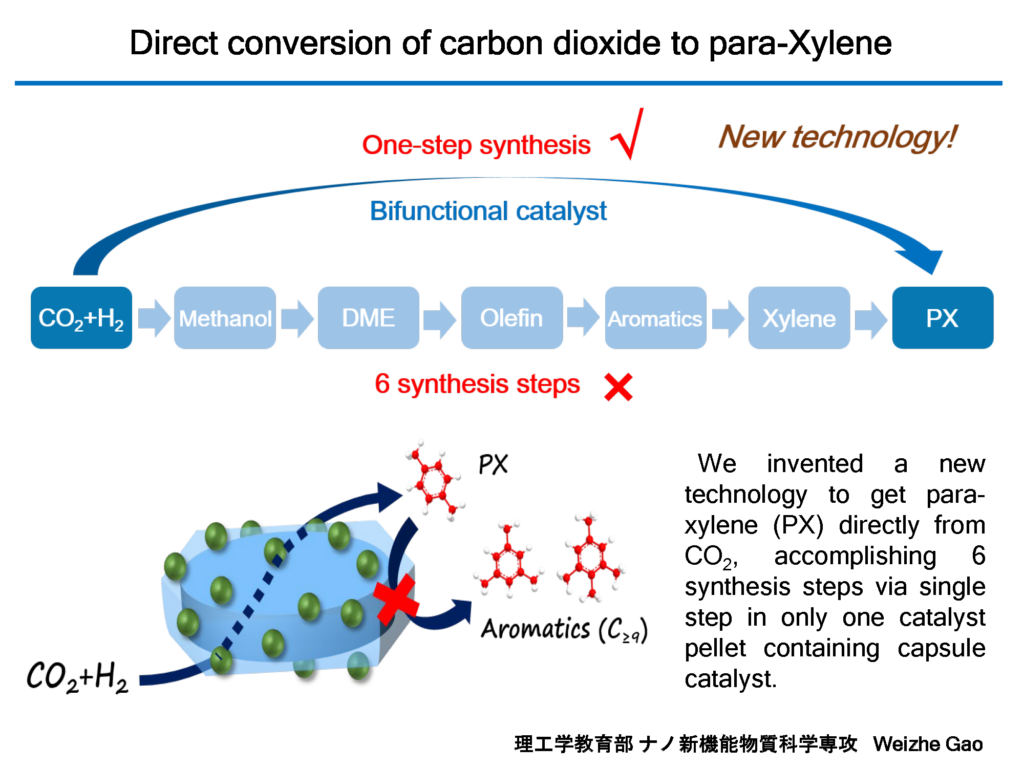自己紹介・研究目的
令和4年度修了/ ■SPRING事業 採択学生紹介

ナノ新機能物質科学専攻
令和4年度 大学院入学
高 煒哲
コウ イテツ
二酸化炭素からのパラキシレン合成
Hello, everyone. It’s my pleasure to introduce myself. My name is Weizhe Gao, a third-year doctor student majoring in Nano and Functional Material Sciences. My research topic is about direct conversion of carbon dioxide to para-Xylene.
In the past decades, the rapid rise of carbon dioxide (CO2) concentration in the atmosphere leads to some serious issues for environment such as global warming, ocean acidification, and so on. The direct transformation of CO2 to high value-added chemicals has attracted much attention. It not only partially relieves the emission of CO2, but also effectively creates benefits.
Para-Xylene (PX) is an important raw chemical for producing terephthalic acid and PET plastics. Generally, PX is mainly produced from the petroleum hydrocracking. However, the production of PX from the decreasing petroleum resources cannot meet the growing demand annually in the world. Therefore, it is urgent to develop some alternative non-petroleum routes for direct producing PX.
The aim of this work is direct conversion of CO2 to PX. PX is a main monomer of polyester fiber and PET plastics, with an annual demand of 49 million ton worldwide. If all PX from petroleum now is tuned to be made from CO2, 0.16 billion ton CO2 will be fixed every year.
In the past decades, the rapid rise of carbon dioxide (CO2) concentration in the atmosphere leads to some serious issues for environment such as global warming, ocean acidification, and so on. The direct transformation of CO2 to high value-added chemicals has attracted much attention. It not only partially relieves the emission of CO2, but also effectively creates benefits.
Para-Xylene (PX) is an important raw chemical for producing terephthalic acid and PET plastics. Generally, PX is mainly produced from the petroleum hydrocracking. However, the production of PX from the decreasing petroleum resources cannot meet the growing demand annually in the world. Therefore, it is urgent to develop some alternative non-petroleum routes for direct producing PX.
The aim of this work is direct conversion of CO2 to PX. PX is a main monomer of polyester fiber and PET plastics, with an annual demand of 49 million ton worldwide. If all PX from petroleum now is tuned to be made from CO2, 0.16 billion ton CO2 will be fixed every year.


